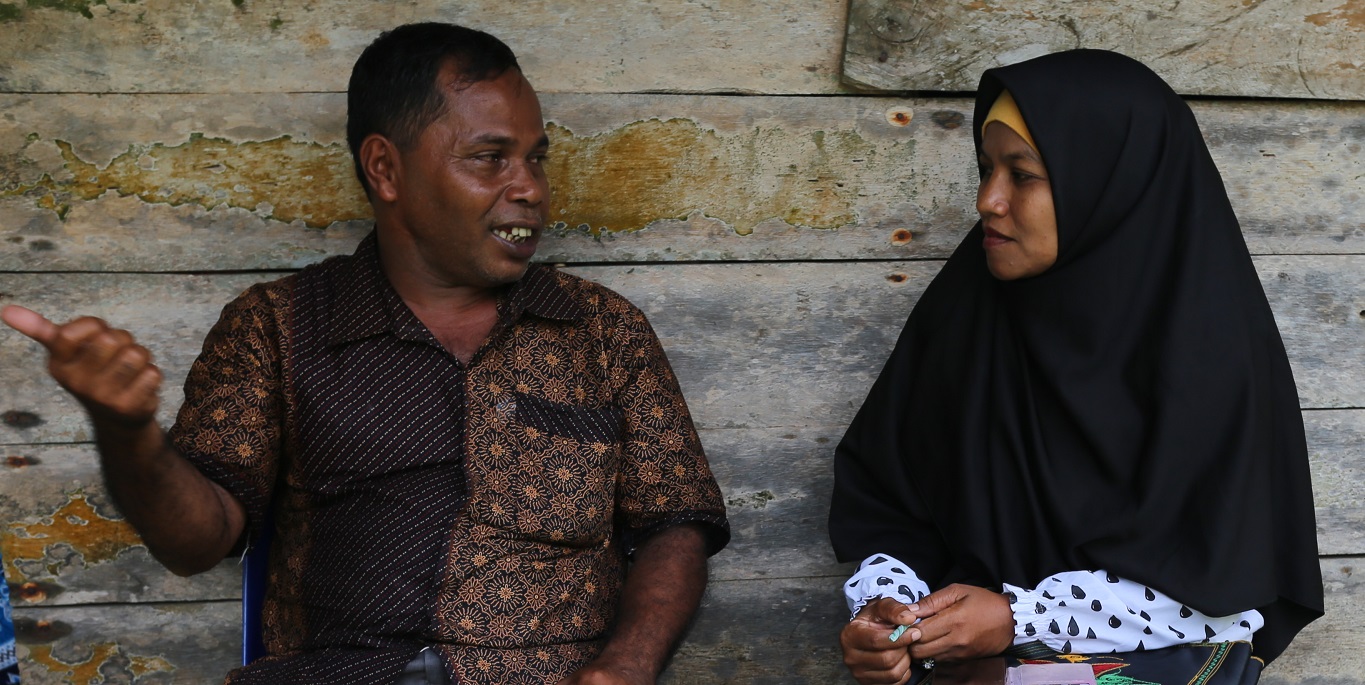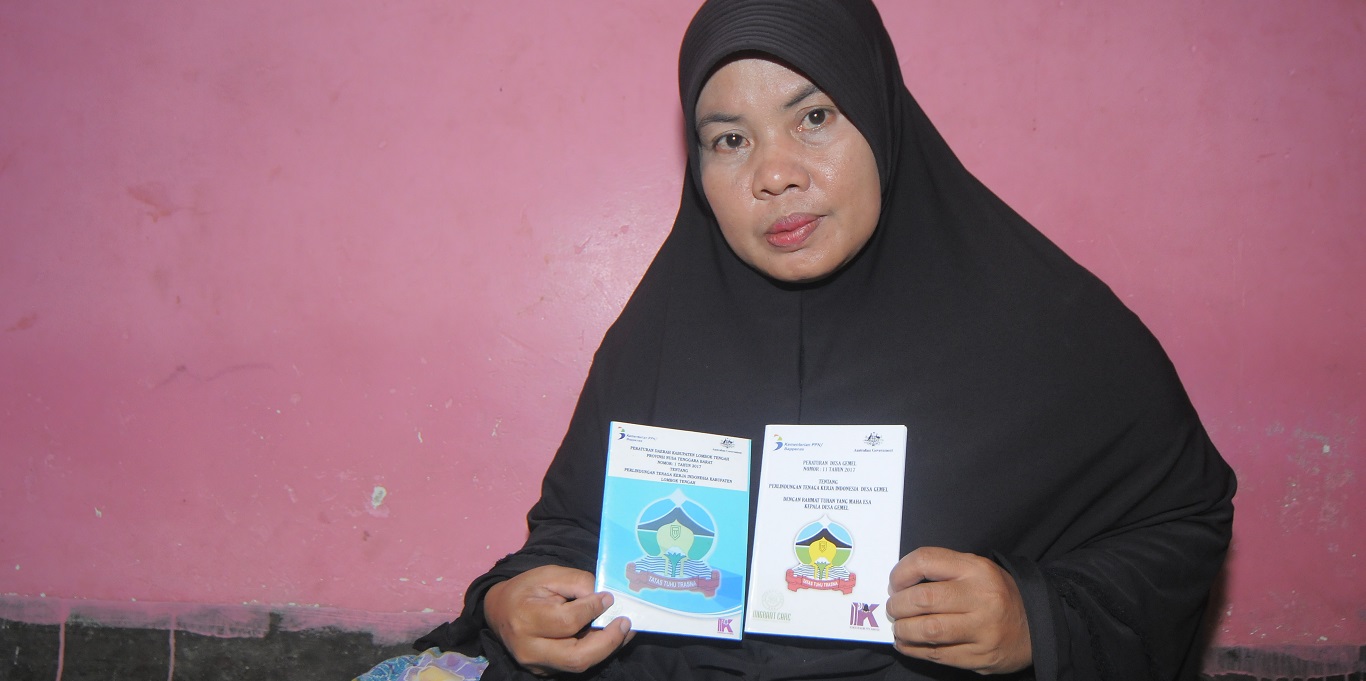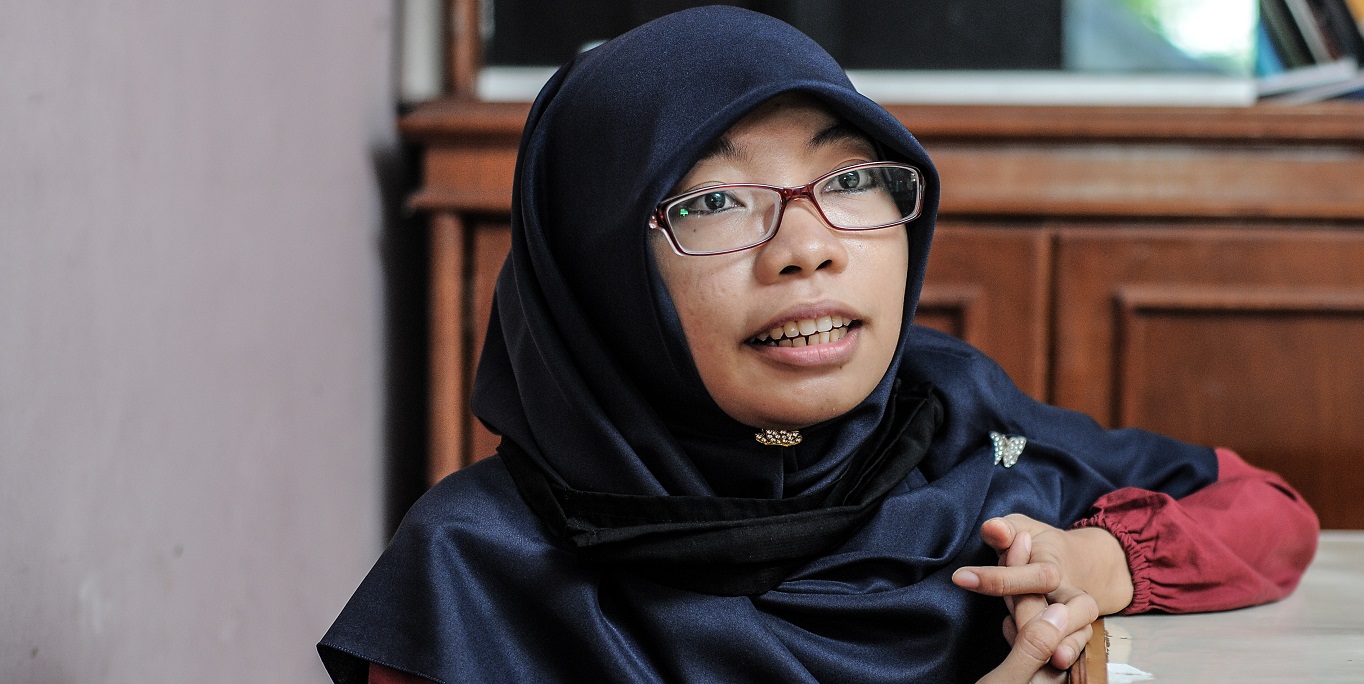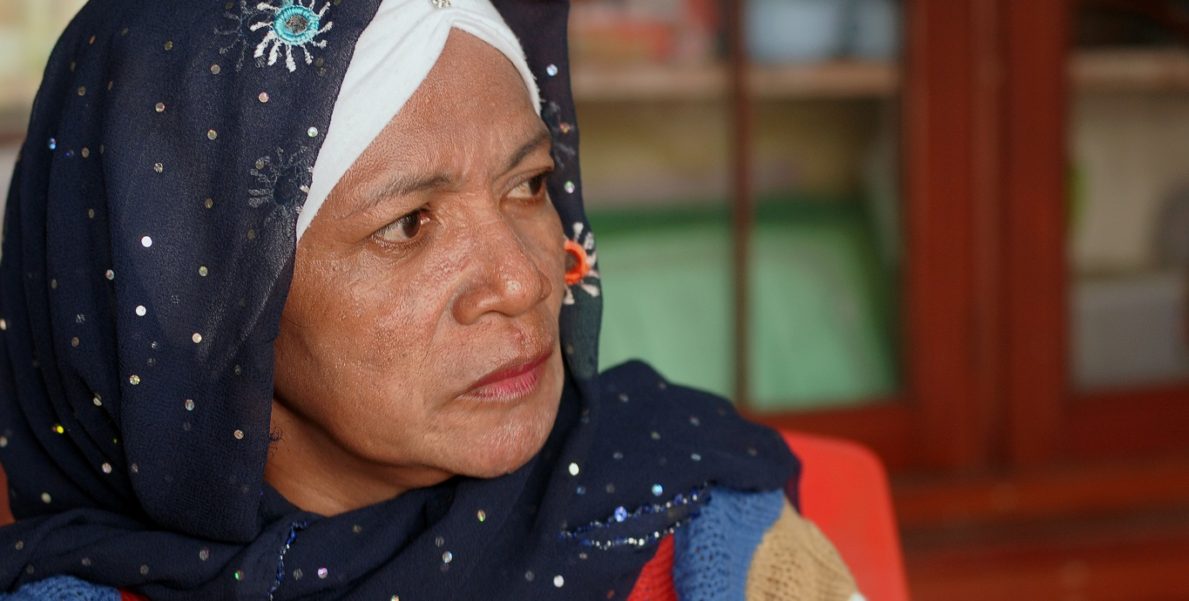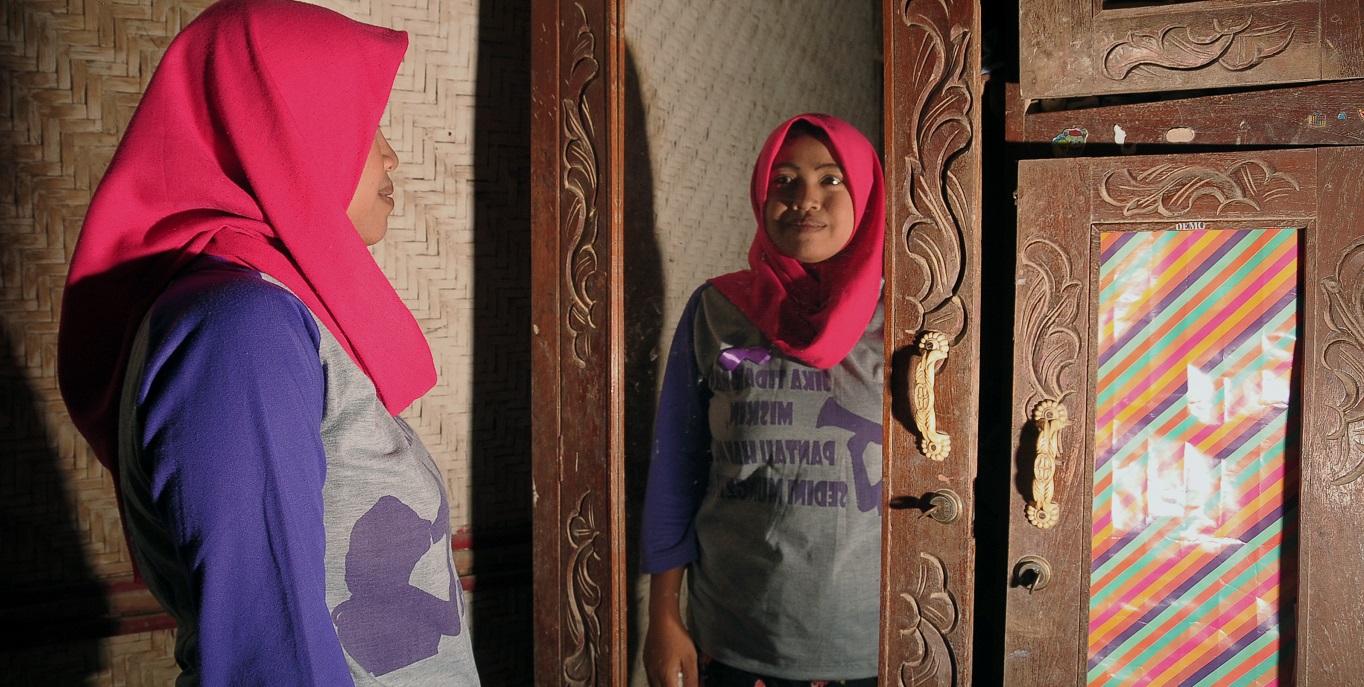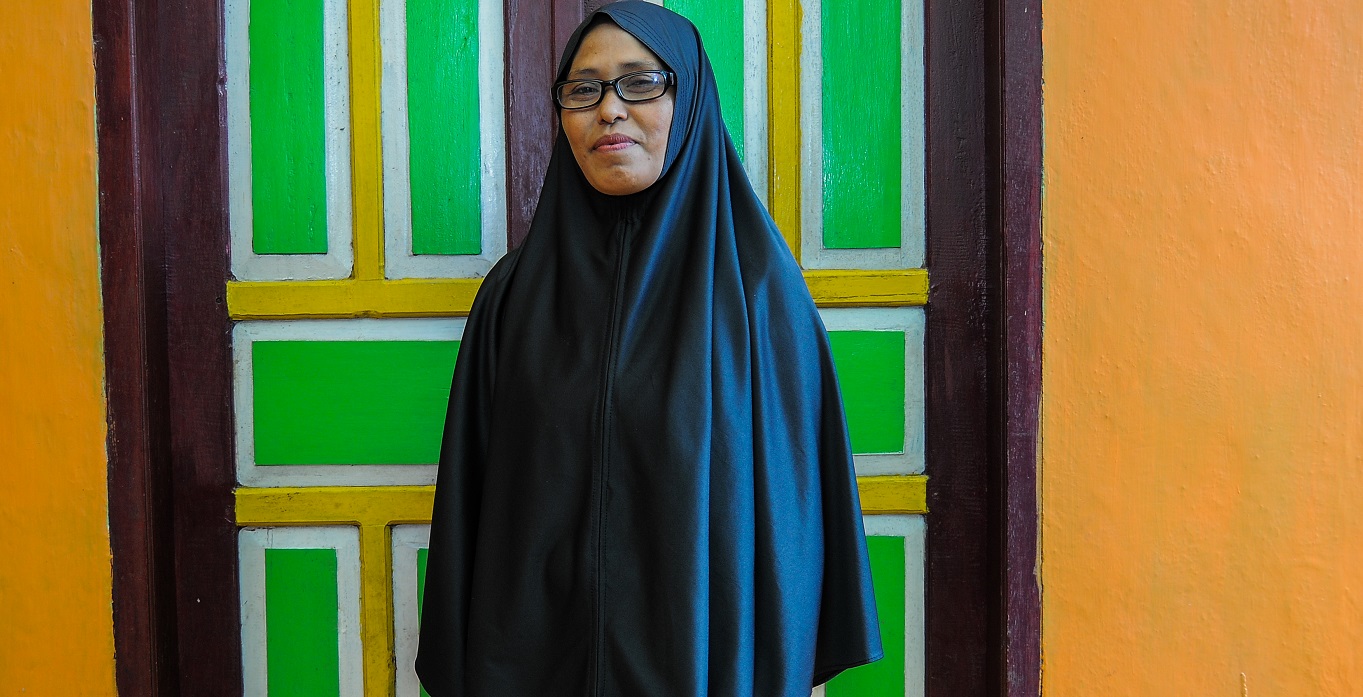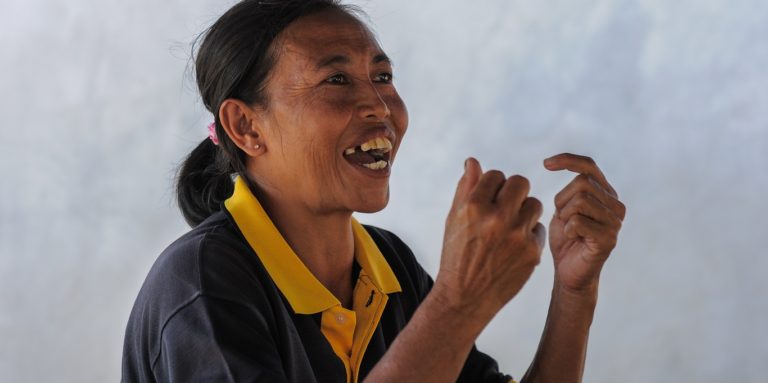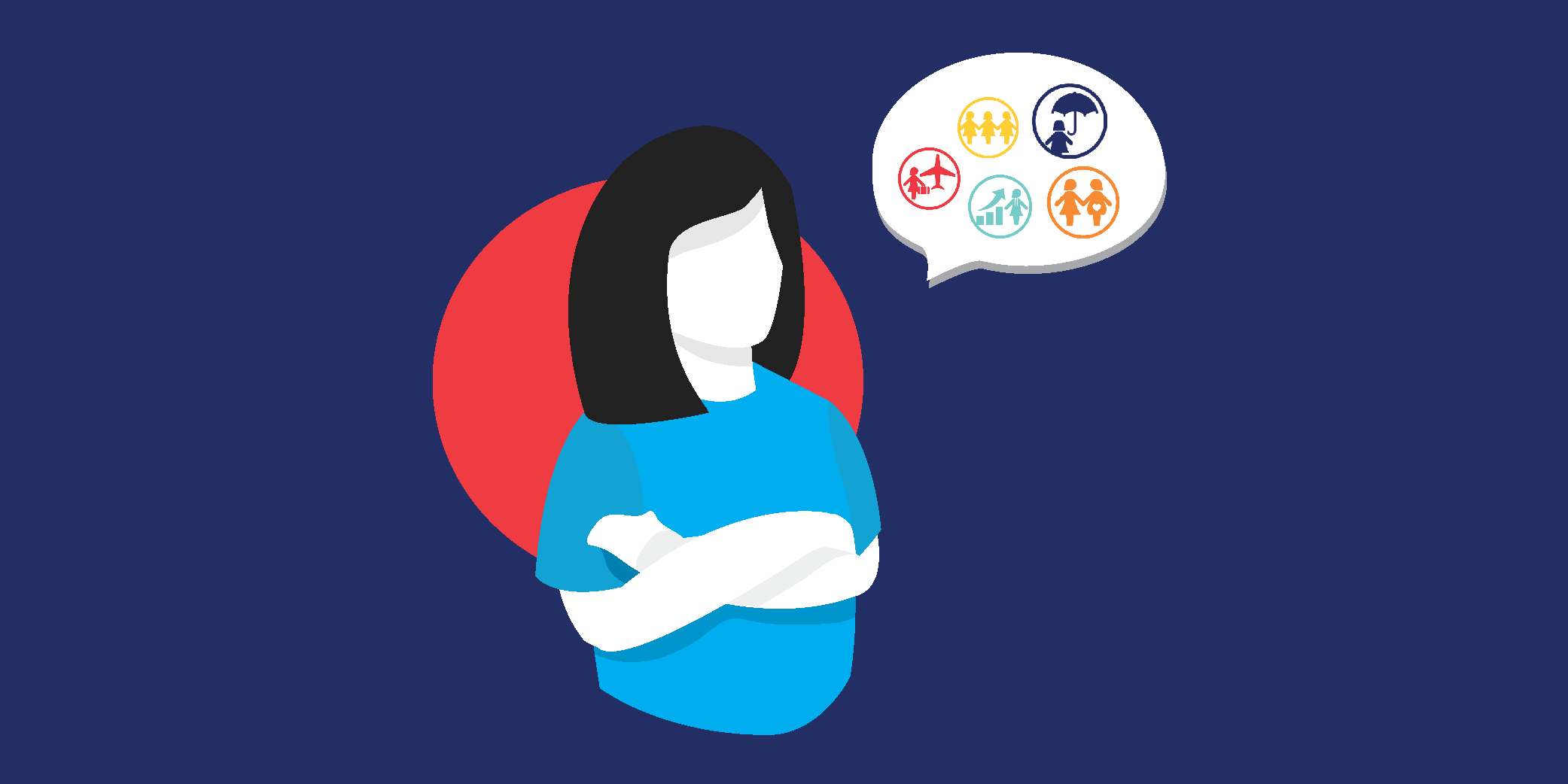Stories
Silma Desi, Disability Makes no Barrier to Leadership
3 December 2018Penulis: admin

“We are not asking for special treatment, we are just asking for services and treatment that fit our needs,” explained Silma Desi.
This inspirational woman from the District of Pesisir Selatan, West Sumatra, is unswerving in advocating for the rights of people with disabilities to access healthcare. Since she joined the women’s group Balai Perempuan Kemuning, an organisation that was established by the Indonesian Women’s Coalition (KPI), one of MAMPU’s partners for increasing access to social protection, she is now confident to speak out about the injustices that people with disabilities often experience when accessing health services.
Silma has had scoliosis since childhood, requiring routine physiotherapy to help manage her the pain. Now, at 24 years of age, Silma has recently graduated from the Indonesian Literature Department of Andalas University in Padang City.
To undergo physiotherapy, Sima uses the JKN. However, the complicated administrative process involved in accessing JKN means that it was challenging for her to use the service. She had to travel back and forth to her hometown, in the Pesisir Selatan District to arrange referrals, despite the fact that she has resided in Padang since attending university.
Traveling back and forth between Pesisir Selatan and Padang is not easy for Silma, and at times physical exhaustion makes it hard for her to move. “In the end, I had to spend my own money on alternative medicines,” recalls Silma.
Another obstacle faced by Silma is that the registration counter at the hospital which is too tall for her petite stature due to her scoliosis. Even though she lines up at the registration counter, because the worker behind the desk does not see Silma, other patients behind her are served first.
“These are people that are also ill, and they want to be served quickly, the result is that they do not see that there is another person with special needs waiting,” explained Silma, who feels that as a person with a disability she often doesn’t receive adequate attention.
According to Silma, many people with disabilities feel helpless to speak out, and finally resign themselves to their condition and decide not to use JKN facilities. Many of these people with disabilities come from low-income families, which means they face difficulties in covering the high costs of hospitals and health care.
“There are many people who require ongoing treatment that are forced to stop treatment because of the high costs involved. As a result their health and even lives are at risk,” said Silma.
Silma said that things have improved however since the online JKN registration service commenced.
Empowered with Balai Perempuan Kemuning
Since becoming a part of KPI’s Balai Perempuan Kemuning, a support group for women with disabilities in West Sumatra, Silma’s confidence and skills have developed rapidly. In 2016, she received Basic Kader training on JKN funded by the MAMPU Program. Silma is now a JKN facilitator who helps to disseminate information about health rights, including how to access JKN, to other BP members in villages in West Sumatra and Jambi.
As a JKN facilitator, Silma receives complaints from the public regarding JKN access through KPI’s PIPA-JKN initiative. She forwards these complaints to health personnel and the related agencies.
She is also improving data collection on people with disabilities who have not yet received their JKN card, and helping these people with the process.
As a Balai Perempuan Cadre, Silma is entrusted to be an extension agent, assisting both people with disabilities and people without disabilities. Through BP’s empowerment and advocacy programs, Silma’s self-confidence to express her thoughts and feelings has grown immensely.
“This shows people with disabilities also have the same capabilities as others,” said Silma.
In carrying out her role as a JKN facilitator, Silma has faced a number of challenges. This includes meeting people with disabilities who are not acknowledged by their own families, because they are seen as a source of shame.
“They don’t have identity cards (KTP) because they are not registered on their family’s Family Card. If so, it is difficult for them to get access to JKN”,” told Silma.
Silma is determined to continue to be help others as long as it is God’s will. “Every person has the right to information. When we work, we also have a responsibility to other people; we are not just working for ourselves,” she said.
Silma hopes that in the future, public policy makers, especially the government, will pay more attention to the needs of people with disabilities in accessing JKN. This will allow the National Health Insurance Scheme to, in accordance with its name, guarantee the health of all citizens of Indonesia, without exception.



